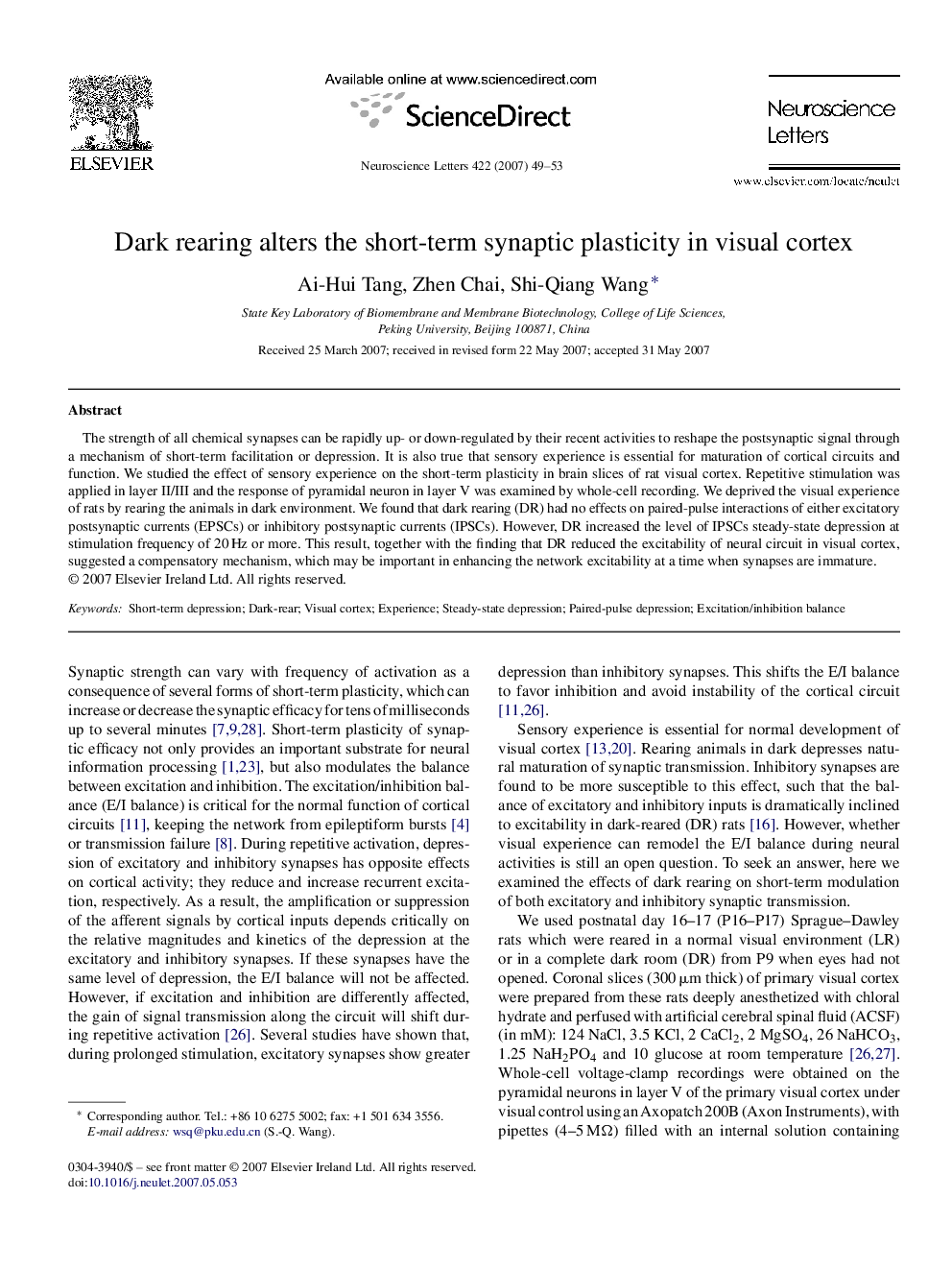| Article ID | Journal | Published Year | Pages | File Type |
|---|---|---|---|---|
| 4349253 | Neuroscience Letters | 2007 | 5 Pages |
The strength of all chemical synapses can be rapidly up- or down-regulated by their recent activities to reshape the postsynaptic signal through a mechanism of short-term facilitation or depression. It is also true that sensory experience is essential for maturation of cortical circuits and function. We studied the effect of sensory experience on the short-term plasticity in brain slices of rat visual cortex. Repetitive stimulation was applied in layer II/III and the response of pyramidal neuron in layer V was examined by whole-cell recording. We deprived the visual experience of rats by rearing the animals in dark environment. We found that dark rearing (DR) had no effects on paired-pulse interactions of either excitatory postsynaptic currents (EPSCs) or inhibitory postsynaptic currents (IPSCs). However, DR increased the level of IPSCs steady-state depression at stimulation frequency of 20 Hz or more. This result, together with the finding that DR reduced the excitability of neural circuit in visual cortex, suggested a compensatory mechanism, which may be important in enhancing the network excitability at a time when synapses are immature.
